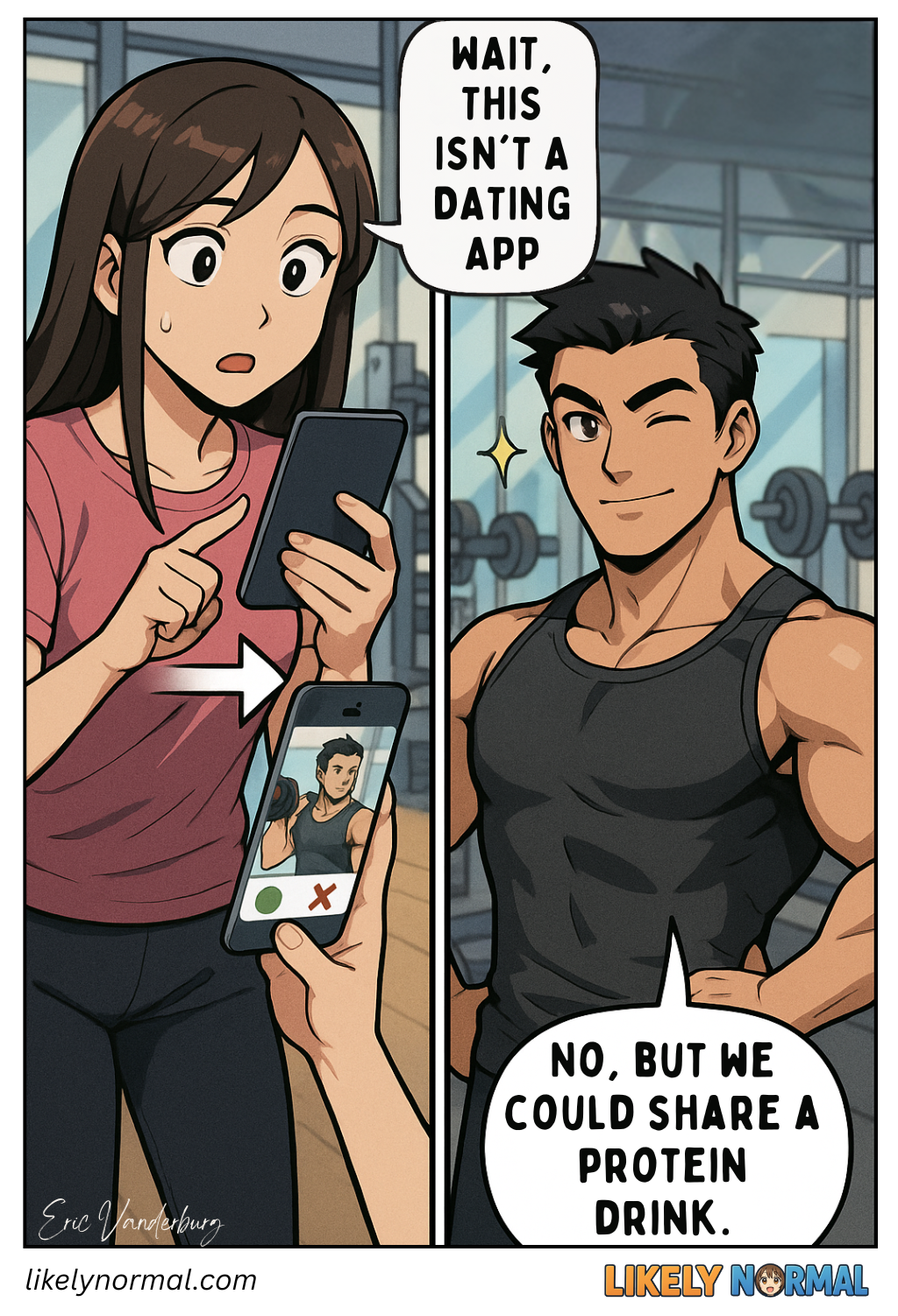Tinder Workout Oops
Dating before Tinder required actual effort – dressing up, going outside, and mustering the courage to talk to strangers like some kind of medieval peasant. Online dating changed things (I met my wife on eHarmony), but Tinder was the real revolution. It created the great digital dating age, where with a flick of your thumb, romance was reduced to a hyper-addictive slot machine that occasionally spits out bad dates and worse pickup lines. The app didn’t just change how people date – it reprogrammed brains and hijacked vocabulary until “swipe left” became the universal symbol for rejection, whether applied to potential partners or overpriced brunch spots.
Modern dating now operates like a bizarre hybrid of Supermarket Sweep and The Hunger Games, where everyone’s frantically speed-shopping for the least emotionally damaged partner while trying not to end up as someone’s horror story on Reddit. We’ve developed entirely new pathologies: obsessively decoding response times (“They replied in 3 minutes but took 4 hours to answer my second text – is this a hostage situation?”), performing FBI-level background checks on blurry group photos (“Is that his sister or his ex-wife?”), and treating “let’s grab drinks” with the gravitas of a marriage proposal. The app’s vernacular has bled into everyday life – now we “ghost” bad meetings at work, “breadcrumb” our friends with vague plans, and “soft launch” everything from new haircuts to questionable life choices.
Perhaps most impressively, Tinder tricked an entire generation into believing that having infinite options is the same thing as having better options. We swipe through potential partners like we’re scrolling Netflix – always wondering if something better might pop up on the next screen, paralyzed by the paradox of choice. The result? A dating culture where everyone’s simultaneously overwhelmed and underwhelmed, treating real human connection with all the commitment of a free trial subscription. Yet here we remain, thumbs at the ready, because somewhere between the “hey” messages and the sunset silhouette pics, we still hold out hope that our next right swipe might be the one that doesn’t make us want to delete the app and join a monastery. Until then, at least we’ve got great stories – and the shared trauma of knowing exactly what “U up?” really means at 2 AM.

Discussion ¬